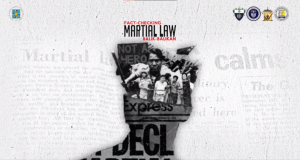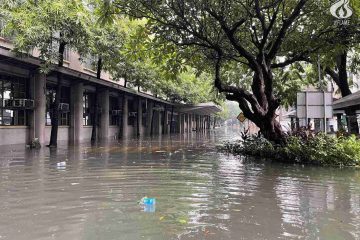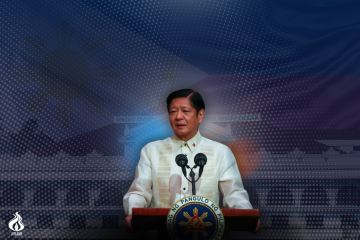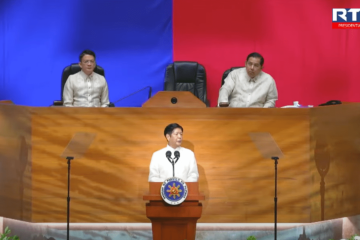by ARTHUR N. APOSTOL

ARTLETS SHOULD engage in dialogue instead of acting as agents of cancel culture, especially on discussions about Martial Law, a community development expert said.
Tyrone Nepomuceno, UST-Simbahayan Community Development coordinator, said people should promote a culture of dialogue with the deniers of the Martial Law abuses as individuals hold different experiences during the era.
“It could be good for some, but it could be bad for others, we need to listen to both the positive and negative sides,” Nepomuceno said during the ‘Martial Law Balik-Balikan: A Webinar on Historical Distortion and Fact-Checking of Martial Law Resources’ last Nov. 18.
However, the fact that several Filipinos were victimized during Martial Law should not be overlooked, Nepomuceno added.
“For example, the Ilocanos, if Marcos showed them good governance, we cannot do anything about that. That is also true, but we need to prioritize a culture of dialogue,” said Nepomuceno.
“We can say you experienced good things during the Martial Law era, but other people have different or bad experiences,” he added.
Sociology professor and UST Simbahayan office director Froilan Alipao said a culture of dialogue and solidarity is needed to achieve a society where there is justice, peace, and freedom.
“In the Catholic social teaching Fratelli Tuti, the Pope encourages us to level up and increase the culture of dialogue and the culture of solidarity,” he added.
The culture of dialogue, Alipao said, could start inside one’s household.
“In a family, it should not be that when someone says one thing, the others follow suit. Within the family, we can also create a dialogue, we should also experience dialogue,” he said.
Lessons of the past
Nepomuceno also cited the importance of history, saying all sectors should work together to teach the lessons of the past.
“The government should do its part, the teachers should do their part, the school should do their part, the youth should also do their part. All sectors should cooperate with each other,” he added.
Nepomuceno called on the academe to relate history with current issues regardless of the course since the purpose of education is to solve the problems of society.
“It should be relatable and experiential. It should be related to the things that are happening in society, the lessons should be brought outside to society,” he said.
The webinar was organized by the UST Artlets Student Council, the UST Journalism Society, and the UST History Society. F



